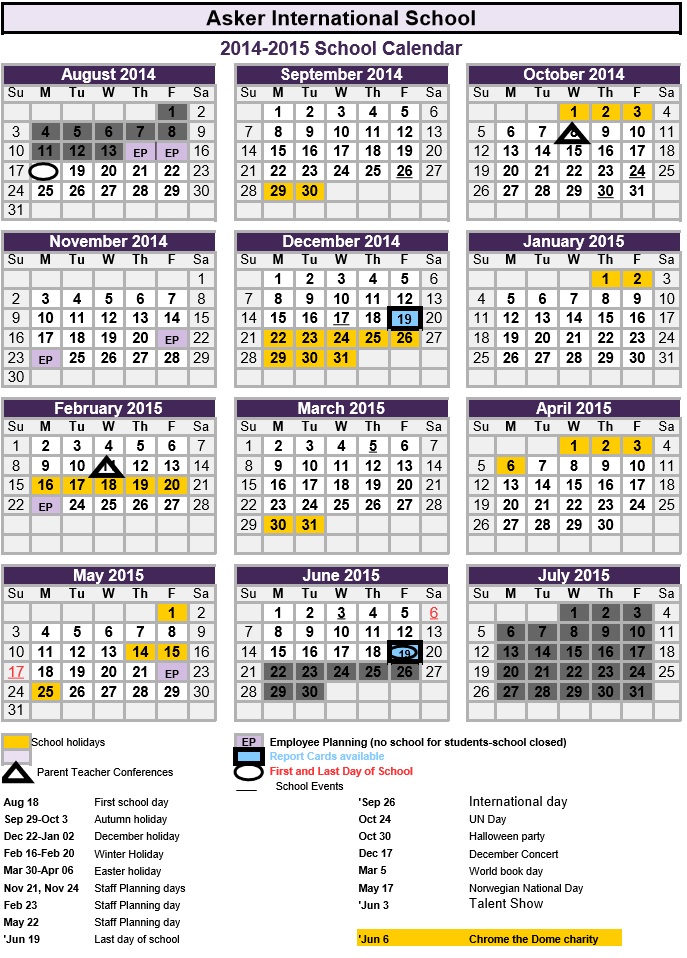It is the child’s own opinion and feeling about his or her environment that matters
Neither the head teacher, other teachers nor pupils – know better than your child how he or she feels about school. For instance, the head teacher cannot simply dismiss a case and claim that bullying is generally rare at the school. If your child is feeling bullied in any way, the school must take the situation seriously and act accordingly.
What does the law say?
The new law concerning school environment and bullying came into force on 1 August 2017. The principle is a zero tolerance approach to bullying. Pupils have a right to feel safe and content at school.
Your child does not have to suffer bullying in order to get help
It’s enough that your child is not thriving. He or she may be feeling lonely, or be apprehensive about going to school.
Your child has the right to be heard
Every child is entitled to express their views and to be heard. This is a principle stated in the UN Convention on the Rights of the Child. Norway has ratified the agreement.
To stop bullying and ensure that your child is content and thriving, school staff must first ask the child how he or she feels. Next, the school must ask you as parents - parent - and your child for your view.
The school has a duty to ensure that all pupils feel safe and thrive at school
All school staff must be observant and make sure that the pupils are content at school. If an adult at the school is aware of – or suspects – that your child is bullied or harassed, he or she shall act and
- intervene and stop it immediately if possible
- alert the head teacher
- investigate what has happened
- draw up a plan with concrete measures
The school is obliged tofollow up on this plan until the child feels safe and content at school.
The head teacher ensures that your child receives the appropriate help
The head teacher shall take all concerns seriously and is obliged to investigate what has happened. The head teacher is responsible for taking steps to bring the bullying and harassment to an end, and to ensure that your child can once again feel safe and happy. The head teacher should keep the parents informed of the action is taken . Both you as paren and your child have the right to be heard.
Each school must have procedures in place to ensure a good school environment
These procedures shall describe what the school is doing to safeguard the well-being of all pupils. This procedure states what the school is doing to prevent and to detect bullying and harassment. It says how they will respond when such behaviours occur.
The procedures should be in writing so that you can read them.
Read more about the school environment and the school’s obligations (text in Norwegian)
What if the bullying happens after school is out?
Incidents that occur among pupils after school can affect how a child feels at school. If something has happened on the football pitch or online that makes your child feel uncomfortable at school, the school must address the problem – even if the underlying reason is something that has occured outside school grounds. This means that the school may have a responsibility even for bullying that happens after school, e.g. online, on the way to school or at football practice. What matters is whether the pupil feels happy when at school. Whatever the underlying reasons, it shall not stop the school from addressing the problem.
Getting help to contact the school
You are entitled to ask the school to take action
As a parent, you may ask the school to take action if you believe your child is unhappy. The school must look into the matter. You can approach the school on your own, together with your child, or together with other parents.
We recommend that you raise the issue with the school by email or letter. This means you have proof that you have asked for help.
- Address the letter or email to the head teacher.
- Remember that it is not your responsibility to suggest what steps to take.
That responsibility rests with the head teacher. However, you and your child may suggest measures that you think will help to solve the problem.
You may ask someone to accompany you to meetings with the school
It is common for parents and school staff to meet to discuss measures and solutions. Many parents feel more at ease if they have someone to accompany them, especially if the issue in question has been going on for some time. You may bring a friend, a family member or another person whom you trust.
You may also give someone written authorisation to act on your behalf.
If you are acting on behalf of your child and your child is 18 or older, he or she must give you written authorisation.
Keep the paperwork. Keep any paperwork from meetings and communication with the school. Make sure that you receive copies of all minutes.
What the school must do
The school must investigate the matter as quickly as possible and obtain as much information as it can. Again - you and your child have a right to be heard.
Before taking action in such cases, the school must always draw up a written plan. The plan should describe:
- the issue that needs solving
- what the school is planning to do about it
- at what time the measures will be activated
- who is responsible for implementing the measures
- at what time the measures will be evaluated
The school is legally obliged to keep the measures in place until your child once again feels safe and content at school. The child’s own feelings are what matters here. The plan must be documented in writing so you and your child to see how the case progresses.
May the head teacher share the contents of my letter or email with others?
The head teacher will often have to talk to other school staff about what you and your child have told them in order to offer help. However, that does not mean that they are free to talk to just anyone about your case. It is quite possible that the head teacher needs to talk to other pupils involved in the bullying/harassment and to their parents.
You may report the problem to the County Governor if your child is still unhappy
In most instances of bullying and harassment, the school will find a good solution together with the pupils and their parents. If thesituation does not improve, or if you believe the measures taken are insufficient, you may report the problem to your County Governor.
When can I report the problem to the County Governor?
If you or your child feel that the school has not done enough to stop the bullying, you can report the matter directly to your County Governor. This assumes that:
- you have first raised the problem with the school’s head teacher
- at least one week has passed since you raised the issue with the school
- the bullying is happening at your child’s current school
In exceptional cases, you may still approach the County Governor regardless of the above.
How do I approach the County Governor?
The County Governor’s office has a form that you can use to report the matter.
Digital form for reporting bullying (Text in Norwegian)
What will the County Governor do?
The County Governor monitors schools to ensure that they observe the laws and regulations concerning pupils’ well-being. If the County Governor's office believes that the school has not fulfilled its obligations, it may instruct the local authority to act to ensure that the pupil in question can feel safe and happy at school. It may also stipulate concrete measures that the school must take. The best interests of the pupils are the primary consideration when the County Governor addresses the case.
The County Governor will set a deadline and ensure that the local authority follows up on the case by that date. If the local authority fails to follow up on the case, it may be issued with a fine.
The County Governor also gives you advice on your child’s rights.
What if the County Governor believes that the school has taken appropriate action?
If the County Governor believes that the school has done what could reasonably be expected of it and that the school’s plans for additional measures are sufficient, the County Governor will not uphold your claim.
Complaining to the Directorate for Education and Training
If you disagree with the County Governor’s decision, you may complain to the Directorate for Education and Training. You must submit your complaint to the County Governor's office, which will first reassess the case. Next, the County Governor will forward the complaint to the Directorate for Education and Training.
The Directorate for Education and Training will review the case, consider your complaint and decide what happens next.
Can I take legal action?
There have been cases in recent years where former pupils have received compensation after taking their local authority to court. You can read more about legal action here. (Text in Norwegian)
Other agencies you can seek advice from
- You can seek advice from the National Parents’ Committee for Primary and Secondary Education (FUG) and the National Parents’ Committee for Kindergartens (FUB).
- The County Governor in your county can give you advice and information about pupils’ rights and about your right to appeal if you feel that the school is not doing enough to stop the bullying or harassment.
- Several organisations, parents’ networks and trusts offer help to parents and are happy to share their experiences of bullying.







